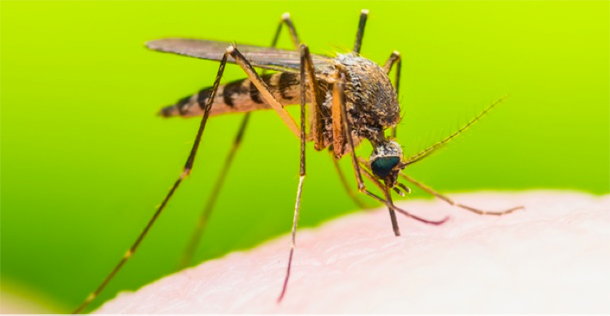“Your Weekly Checkup” is our online column by Dr. Douglas Zipes, an internationally acclaimed cardiologist, professor, author, inventor, and authority on pacing and electrophysiology. Dr. Zipes is also a contributor to The Saturday Evening Post print magazine. Subscribe to receive thoughtful articles, new fiction, health and wellness advice, and gems from our archive.
Order Dr. Zipes’ new book, Damn the Naysayers: A Doctor’s Memoir.
The Centers for Disease Control and Prevention issued a new report stating that illnesses caused by the bite of an infected mosquito, tick or flea (vector-borne diseases) have more than tripled in the United States from 2004 to 2016. Warmer weather has permitted widespread proliferation of ticks, which transmit Lyme disease, Rocky Mountain spotted fever, and tularemia; and mosquitoes, which transmit West Nile virus, Zika, dengue, and chikungunya. Warmer temperatures also tend to make mosquitoes get infected faster and become more infectious, so when they bite, they deposit a larger viral load, increasing the chances of infection. An increase in the deer population infected with deer ticks has helped skyrocket the incidence of Lyme disease, while decreases in predators, such as foxes that keep the rodent population under control, also play a role. More people moving into wooded areas increases human exposure to the vectors.
These diseases have wide geographical distribution and can be difficult to control. Overseas commercial and vacation travel facilitate rapid transmission. Of the diseases found in the U.S., only yellow fever has a vaccine to prevent infection.
Tick-borne diseases make up more than 75 percent of U.S. infection reports (mostly Lyme disease) and tend to concentrate in the eastern parts of the U.S. and along the Pacific Coast. Mosquito-borne illnesses like dengue fever, chikungunya and Zika are found in Puerto Rico, the Caribbean Islands, and some parts of the United States. West Nile virus is widespread across the continental U. S., where it is the major mosquito-borne disease. Plague, the most common flea-borne disease, is found mostly in rural southwestern U.S., and there are less than 17 cases a year.
The new report identified 16 different vector-borne diseases, including Lyme disease, anaplasmosis/ehrlichiosis, spotted fever rickettsiosis, babesiosis, tularemia, Powassan virus, dengue viruses, Zika virus, West Nile virus, malaria, chikungunya virus, California serogroup viruses, St. Louis encephalitis virus, Eastern equine encephalitis virus, yellow fever virus, and plague. New pathogens have been found, such as the tick-borne Heartland and Bourbon viruses from the Midwest.
What Can You Do to Prevent Infection?
When outside
- Cover all exposed skin with clothing (tuck pants legs into your socks)
- Use insect repellents like DEET, picaridin, and IR3535 on areas not covered;
- Spray closed shoes and clothes with permethrin to repel ticks and mosquitoes
- Avoid tall grassy fields, bushes, and sitting on dead logs that are especially attractive to ticks
- Check your clothes and body (scalp, folds of skin, private parts, behind ears and knees, back) and dog or cat for ticks after a hike.
Around your house
- Rid your yard and deck of empty flower pots, bird baths or bowls where water can accumulate to breed mosquitoes.
- Fence out deer, prune trees, keep the grass cut short, clear leaves, remove overgrowth, and consider spraying.
If you find a tick
- If you find an embedded tick, grasp it with tweezers, and gently pull it out. Save the carcass for later analysis if necessary.
These transmitted diseases are much more than warm weather nuisances. Some of them can kill or produce severe, long lasting illness. Rocky Mountain spotted fever isn’t limited to the Rocky Mountains, and Lyme disease can be a chameleon lingering painfully for months. Forewarned is forearmed.
Become a Saturday Evening Post member and enjoy unlimited access. Subscribe now



